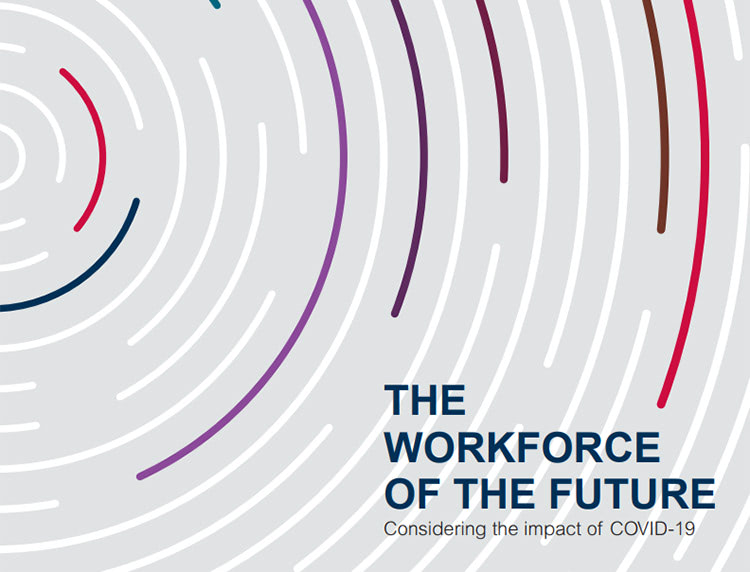The Workforce Of The Future: Is employment law fit for purpose, post Covid-19?

#FutureOfWork – Paris Smith solicitors today (11 Dec) released a special report examining whether employment law is fit for purpose with the enforced rise in home working.
Paris Smith today released a white paper entitled ‘The Workforce Of The Future’, which exposes the limitations of employment law and explores the wider challenges faced by employers in the ‘new normal’.
The report suggests it’s time for a rethink. It considers the law around areas such as employees’ mental health, Zoom fatigue, the right to disconnect, flexible working and provides options to avoid redundancies and manage performance.
Clive Dobbin, Partner at Paris Smith:
“Employers now have to carefully consider whether they still wish to return to ‘business as normal’ or whether they should instead start to plan for a new normal which embraces flexible working. The law needs to be completely updated to give greater rights to challenge an employer’s refusal to allow homeworking.”
The report examines the role of leadership in this time of change and how new ways of working can support employee wellbeing and productivity. Organisations thrive when staff feel valued and their ideas are implemented – but how do you ensure a motivated and successful remote workforce? And is this even possible under current employment law?
Dr Simon Fox, Head of Law at Solent University:
“We are living through a revolution. Working practices and the law evolve through time. Covid-19 has moved such an evolution into a revolution, as we are forced to make rapid and immediate changes to how we socialise, live and work. I am concerned that there needs to be a proper consideration of people’s wellbeing and their mental health, as well as their physical health, in regard to working remotely and working from home. That leads back to the law needing to adjust and keep pace.”
Jo Sinclair, Head of HR at King Edward VI School in Southampton:
“As an HR team we had to adapt quickly to home working during lockdown while continuing to provide the continued HR support that was required more than ever. Interview processes were moved online, team meetings took place on zoom, we quickly established the use of Adobe Sign for the sending and signing of employment paperwork and we significantly increased our communication with staff to help with any feelings of isolation, particularly with our furloughed staff.”
The report examines the role of leadership in this time of change and how new ways of working can support employee wellbeing and productivity. Organisations thrive when staff feel valued and their ideas are implemented – but how do you ensure a motivated and successful remote workforce? And is this even possible under current employment law?
The report also looks at how leaders create trust and whether they wish to return to ‘business as normal’ once all restrictions are eased. Employers who look to embrace flexible working will have to adopt new systems to effectively manage employee performance and their mental wellbeing.
The report questions what this all means for the physical office and for town and city centres. Andrew Edmonds, Managing Partner at Smith & Williamson LLP, a firm of accountants in Southampton, notes: “The buzz phrase around the firm seems to be ‘come to the office to collaborate, go home to work.”
Dr Simon Fox, Head of Law at Solent University:
“What can we do? How should we do it? What can we learn? To answer these questions you will need legal guidance. This white paper is here to provide just such guidance.”
The white paper covers:
- Leadership in the new working world
- The future of flexible working
- Performance management and dealing with redundancies
- Mental health and the workforce
- The new national talent pool, the digitised workforce and skills gaps
- The office environment post Covid-19
This special report draws on the experience of global to local firms and showcases Paris Smith’s strong footprint in the south west of England. Contributors include Carnival UK (P&O Cruises & Cunard), Draper Tools, KPMG, global farming and food group Barfoots, accountants Smith & Williamson, Marwell Wildlife, TW Metals, King Edward VI School and GO! Southampton.











Responses